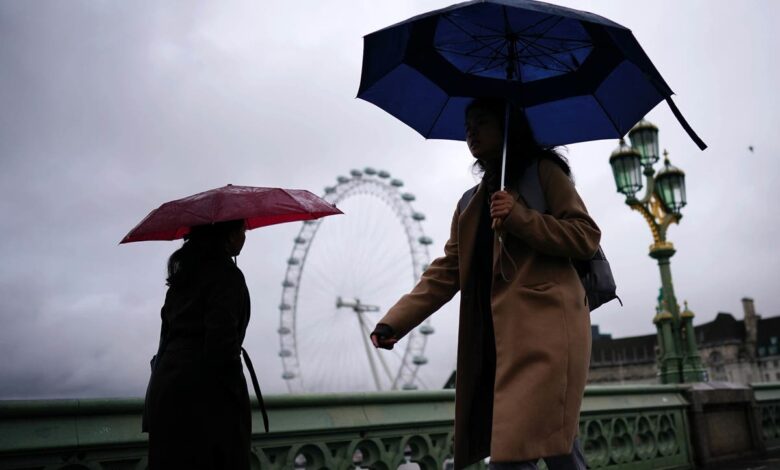Wages rise at fastest pace in two decades but fall behind inflation

Wages have grown at the fastest rate in more than 20 years, but are still failing to keep up with inflation.
Regular pay, which excludes bonuses, rose at an annual pace of 6.4 per cent between September and November, official figures show.
The proportion of working-age people who were unemployed also increased in the three months to November, while the number who were in work remained unchanged, new figures show.
Data from the Office for National Statistics published on Tuesday suggests the unemployment rate hit 3.7 per cent, up from 3.5 per cent in the previous quarter.
The ONS said that in the latest period the number of people out of work for up to six months rose, driven by 16 to 24-year-olds.
There was also an increase in the six- to 12-month unemployment figure, but a drop in the number of people out of work for more than a year.
Chancellor Jeremy Hunt said that the UK labour market “remains resilient”.
Mr Hunt said: “Even in the face of global economic challenges, the UK labour market remains resilient with a record number of employees on payrolls.
“The single best way to help people’s wages go further is to stick to our plan to halve inflation this year.
“We must not do anything that risks permanently embedding high prices into our economy, which will only prolong the pain for everyone.”
Jonathan Ashworth MP, Labour’s shadow work and pensions secretary, said of the last unemployment figures: “Today’s figures show the Tories are totally bereft of ideas when it comes to tackling the cost-of-living crisis, growing the economy and supporting people into work.
“Real wages are plummeting, almost two-and-a-half million people are out of work because of sickness and far too many people – especially the over-50s – aren’t getting the support they need to either stay in work or to go back to work.”
ONS director of economic statistics Darren Morgan said: “In the most recent three months, employment levels were largely unchanged on the previous three months.
“However, unemployment rose, driven by more young people who have only recently become unemployed, meaning overall there was a small increase in people actively engaged in the jobs market, whether working or looking for work.
“Vacancies fell again, though remaining at very high levels, with the number of people looking for work broadly in line with the number of jobs being advertised.
“The real value of people’s pay continues to fall, with prices still rising faster than earnings. This remains amongst the fastest drops in regular earnings since records began.”





